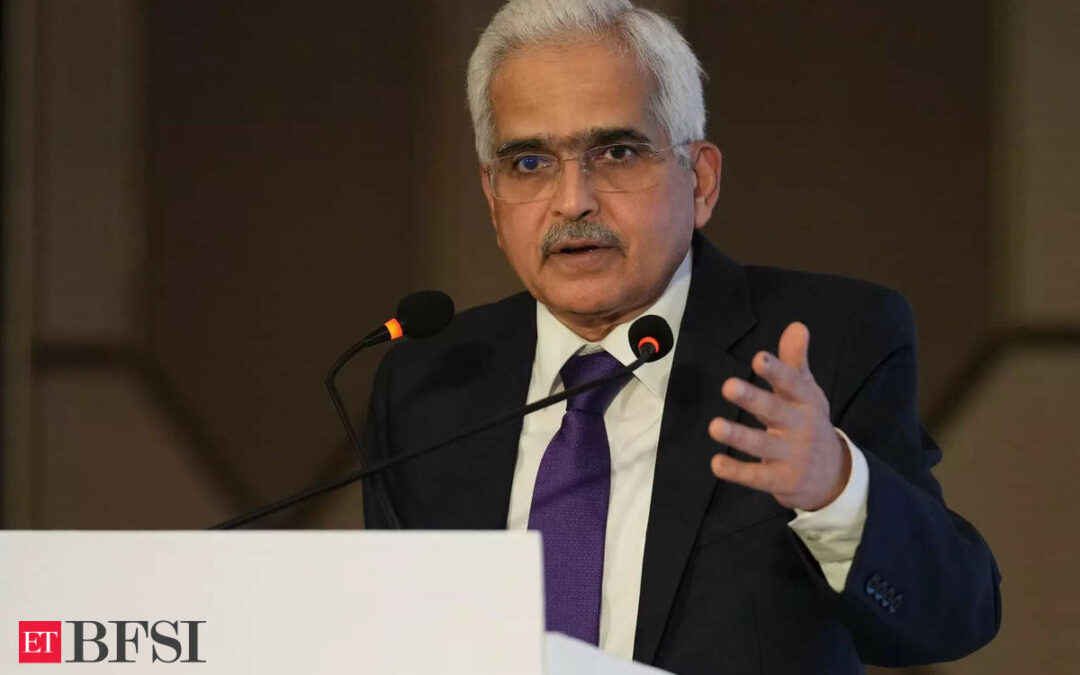The Reserve Bank of India (RBI) on Friday, in a 4-2 majority vote, decided to keep the repo rate unchanged at 6.5 per cent, marking the 11th consecutive pause in its rate-setting cycle. RBI Governor Shaktikanta Das stated that the policy stance remains neutral, offering flexibility to respond to evolving economic conditions.
Amid concerns over a growth slowdown in the second quarter of FY25, where GDP growth dipped to 5.4 per cent, the slowest in seven quarters, the central bank also announced a reduction in the Cash Reserve Ratio (CRR) for all banks by 50 basis points to 4 per cent.
The RBI revised its GDP growth forecast for FY25 to 6.8 per cent, down from the earlier projection of 7.2 per cent. Growth estimates for Q3 and Q4 of the current fiscal are pegged at 6.8 per cent and 7.2 per cent, respectively.
On inflation, the governor projected core inflation at 4.8 per cent for FY25, with quarterly estimates at 5.7 per cent for Q3, 4.5 per cent for Q4, and for FY26, 4.6 per cent for Q1, and 4% per cent for Q2.
Here are the Top 10 key takeaways from RBI Governor Shaktikanta Das’ speech:
Reduction in Cash Reserve Ratio (CRR)
Indian Central Bank has decided to reduce the CRR of all banks by 50 basis points in two equal tranches of 25 bps each, bringing it down to 4 per cent of net demand and time liabilities (NDTL). This rollback, effective December 14 and December 28, 2024, respectively, restores the CRR to its pre-tightening cycle level from April 2022 and is expected to release Rs 1.16 lakh crore in primary liquidity into the banking system.
Higher Interest Rates on FCNR(B) Deposits
To attract greater foreign capital inflows, the RBI has revised the interest rate ceilings on Foreign Currency Non-Resident Bank [FCNR(B)] deposits. For maturities of 1-3 years, rates are now capped at ARR + 400 bps, and for 3-5 years at ARR + 500 bps. This enhanced limit is available until March 31, 2025.
The Reserve Bank of India (RBI) regulates Foreign Currency Non-Resident (B) (FCNR(B)) deposits, which are accounts that allow Non-Resident Indians (NRIs) to hold their earnings in foreign currencies.
Expansion of FX-Retail Platform via Bharat Connect
In order to improve transparency and accessibility for foreign exchange transactions, especially for individuals and MSMEs, the FX-Retail platform will now link with Bharat Connect (formerly Bharat Bill Payment System). Initially, this will allow users to purchase US dollars against the rupee via bank and non-bank apps, with plans to extend the scope to other FX transactions in future phases.
FX-Retail is an electronic trading platform for retail banking customers to buy and sell foreign exchange.
Introduction of the Secured Overnight Rupee Rate (SORR)
As per the recommendations from the MIBOR Benchmark Review Committee, the RBI is developing a new benchmark based on secured money markets, namely basket repo and TREP, called the Secured Overnight Rupee Rate (SORR). This aims to improve the credibility and robustness of interest rate benchmarks.
Launch of the ‘Connect 2 Regulate’ Initiative
In a move to encourage open and participatory regulation, the RBI has introduced the ‘Connect 2 Regulate’ program. Through this initiative, stakeholders can contribute ideas, case studies, and concept notes on RBI-designated topics, under the RBI@90 commemorative events.
Podcast Facility
Expanding its communication toolkit, the RBI plans to launch podcasts aimed at disseminating information and creating awareness about policies and public interest topics. This complements its traditional and social media outreach efforts.
Increased Collateral-Free Agriculture Loan Limit
Recognising inflationary pressures and rising agricultural input costs, the RBI has raised the collateral-free agriculture loan limit from Rs 1.6 lakh to Rs 2 lakh per borrower.
Pre-Sanctioned Credit Lines on UPI for SFBs
Small Finance Banks (SFBs) have now been permitted to offer pre-sanctioned credit lines through UPI. This step is expected to expand low-ticket, short-tenure credit products to underserved segments, such as new-to-credit customers. Earlier it was rolled out through Scheduled Commercial Banks in September of 2023.
FREE-AI: Framework for Responsible AI Adoption in Finance
The RBI has announced the formation of a committee to create a robust framework for the responsible and ethical use of Artificial Intelligence in the financial sector. This initiative aims to mitigate risks such as algorithmic bias and data privacy concerns while leveraging AI’s transformative potential.
MuleHunter.AI: AI-Based Detection of Mule Accounts
As part of its fraud prevention strategy, the RBI, through its innovation hub, has piloted an AI/ML model called MuleHunter.AI. This tool detects mule bank accounts used for fraudulent activities. Encouraging results from pilots with two large public sector banks pave the way for wider collaboration and adoption.
Banks are encouraged to collaborate with RBIH to further develop the MuleHunter.AITM initiative to deal with the issue of mule bank accounts being used for committing financial frauds, stated RBI.











